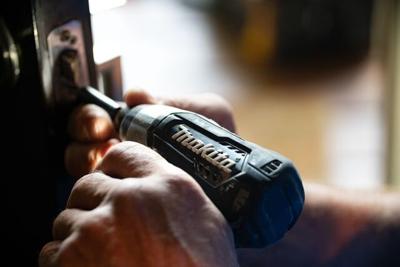
As time goes by, your home will see some wear and tear in all its fixtures, systems, and appliances. While living in it, you might be trying to keep everything in the best possible condition, but time will inevitably eat away at everything, revealing hints that you need to repair or replace them soon.
Most of these home devices have specific years of service in them that your careful usage can extend. However, they will decline slowly in performance and have to be seen by a repairman or replaced with a newer model to keep your home functioning at its best. To help you in this task, here are some of the standard lifespan of home systems and appliances that can tell you when you should think about replacing them.
HVAC System
Your heating, ventilation, and air conditioning (HVAC) system is one of the most critical parts of your home. It keeps the air clean in the interiors and regulates the temperature to a comfortable level. These systems must be checked often as simple damages can lead to more significant problems in the future, but even with good maintenance, they may have to be replaced in a couple of years.
Experts say that these last for a good 15 to 20 years. The furnaces, air conditioning, and heat pumps need repairs regularly after the first few years of installation and replacements somewhere after the ten-year mark.
Refrigerators
Refrigerators are some of the most expensive pieces of home equipment that almost everyone has. They have at least ten to 12 good years in them before they start showing problems. These appliances have to be well taken care of if you want them to last, but repairs may be more cost-effective than replacements.
Caring for them includes wiping every component every few months to prevent molds and odors, removing dust buildup from the coils at the back or the bottom of the unit every half-a-year, and checking that the gasket is holding up well. More practical tips include permanently closing the door, covering food items, etcetera.
Laundry Machine
Washing machines typically last for ten years or more with proper maintenance. The way you run the loads will contribute to how long it can function well. Some of the most significant factors that quickly destroy these machines are overloading with clothes, overloading with soap, soaking the exteriors, placing them on uneven surfaces, and the like. Dryers may last a few years longer but should be maintained just as well as you do your washing machine to avoid early replacement.
Microwave
Microwaves are a staple in most American homes. With moderate usage and proper maintenance, these appliances are expected to last for at least nine years in your home. Daily usage may shorten this lifespan so learn to let it rest for some time. Always clean them after use, wiping the interiors of residues and leaving the door open, especially when you heat foods with strong odors.
Stove
A gas or electric stove can offer different benefits, but both may last as long as 15 years, depending on the brand and the maintenance. Suitable stove units can be expensive but will give a better performance in efficiency and control. Maintaining the cleanliness of the stovetop requires wiping the surfaces after every use and deep cleaning every month. Depending on the stove you have, different checking methods may be needed to test them when problems arise.
Electric Wiring
Electric wiring in the home should permanently be installed in a way that attempts to make them last as long as the entire structure stands. But unexpected problems can occur like pests chewing on them or other factors like water or fire damaging them, making this system a severe fire or electrocution hazard for the home's occupants. Regular checking and maintenance, at least twice a year, should be done to detect a problem as early as possible with the help of a professional electrician.
These systems and appliances may be designed to last for a long time but will never function properly forever. As such, you have to always be light-handed in using them, making sure that they are always clean and intact. Keeping a close eye on all your belongings should help catch damages and malfunctions early so that you can get them repaired immediately.
These tips can act as a reminder to check your belongings and have them repaired or replaced as needed. This should also help to avoid replacing them before they've reached the peak of their lifespan. Let us all keep our homes safe and problem-free starting today.


(0) comments
We welcome your comments
Log In
Post a comment as Guest
Keep it Clean. Please avoid obscene, vulgar, lewd, racist or sexually-oriented language.
PLEASE TURN OFF YOUR CAPS LOCK.
Don't Threaten. Threats of harming another person will not be tolerated.
Be Truthful. Don't knowingly lie about anyone or anything.
Be Nice. No racism, sexism or any sort of -ism that is degrading to another person.
Be Proactive. Use the 'Report' link on each comment to let us know of abusive posts.
Share with Us. We'd love to hear eyewitness accounts, the history behind an article.